Uncategorized
-
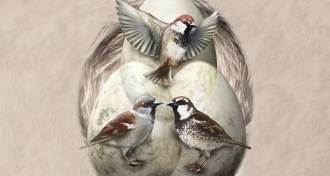 Life
LifeHybrids reveal the barriers to successful mating between species
Scientists don’t understand the process of speciation, but hybrids can reveal the genes that keep species apart.
-
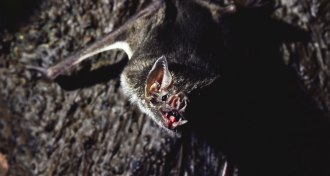 Animals
AnimalsScary as they are, few vampires have a backbone
Researchers speculate on why there are so few vampires among vertebrates.
By Susan Milius -
 Physics
PhysicsPhotons are caught behaving like superconducting electrons
Light particles, or photons, swap energy like electrons in a superconductor.
-
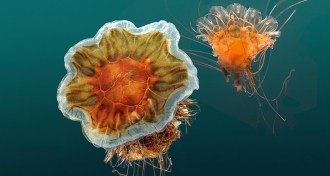 Animals
AnimalsHere’s the real story on jellyfish taking over the world
In 'Spineless,' a former marine scientist reconnects with the seas and science through her obsession with these enigmatic creatures.
-
 Health & Medicine
Health & MedicineZika hasn’t been in the news much, but that doesn’t mean it’s gone
Cases of Zika have dropped as more people become exposed, but the virus will likely emerge again in the future.
-
 Earth
EarthA deadly 2014 landslide’s power came from soils weakened by past slides
Researchers reconstruct how a hillside failed, producing the deadly 2014 Oso landslide.
-
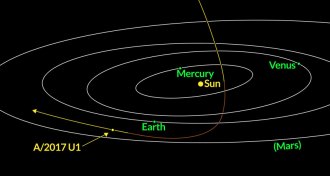 Astronomy
AstronomyAn interstellar asteroid might have just been spotted for the first time
A newly spotted asteroid might be the first known to come from outside the solar system, and it could carry information about the makeup of alien planet systems.
-
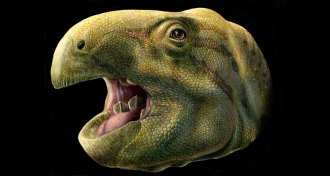 Paleontology
PaleontologyNew dinosaur sported a curious set of chompers
Matheronodon provincialis, a newly described dinosaur, munched on tough plants with big scissors for teeth.
-
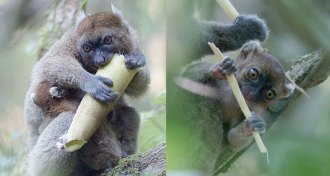 Animals
AnimalsClimate change may threaten these bamboo-eating lemurs
Longer dry spells and more nutrient-poor bamboo might eventually doom the greater bamboo lemur, a critically endangered species.
By Susan Milius -
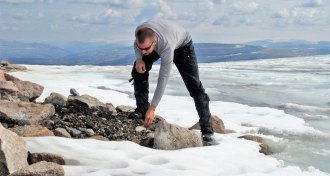 Climate
ClimateAs ice retreats, frozen mosses emerge to tell climate change tale
Plants long entombed beneath Canadian ice are now emerging, telling a story of warming unprecedented in the history of human civilization.
-
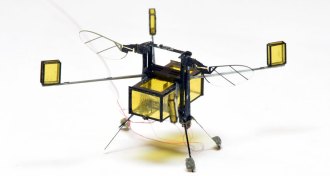 Tech
TechThis is the lightest robot that can fly, swim and take off from water
Lightweight, insect-inspired robot can swim, fly and leap from the surface of water.
-
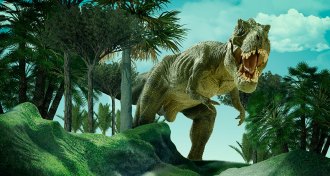 Paleontology
PaleontologyT. rex’s silly-looking arms were built for slashing
Tyrannosaurus rex may have used its small arms for slashing prey.